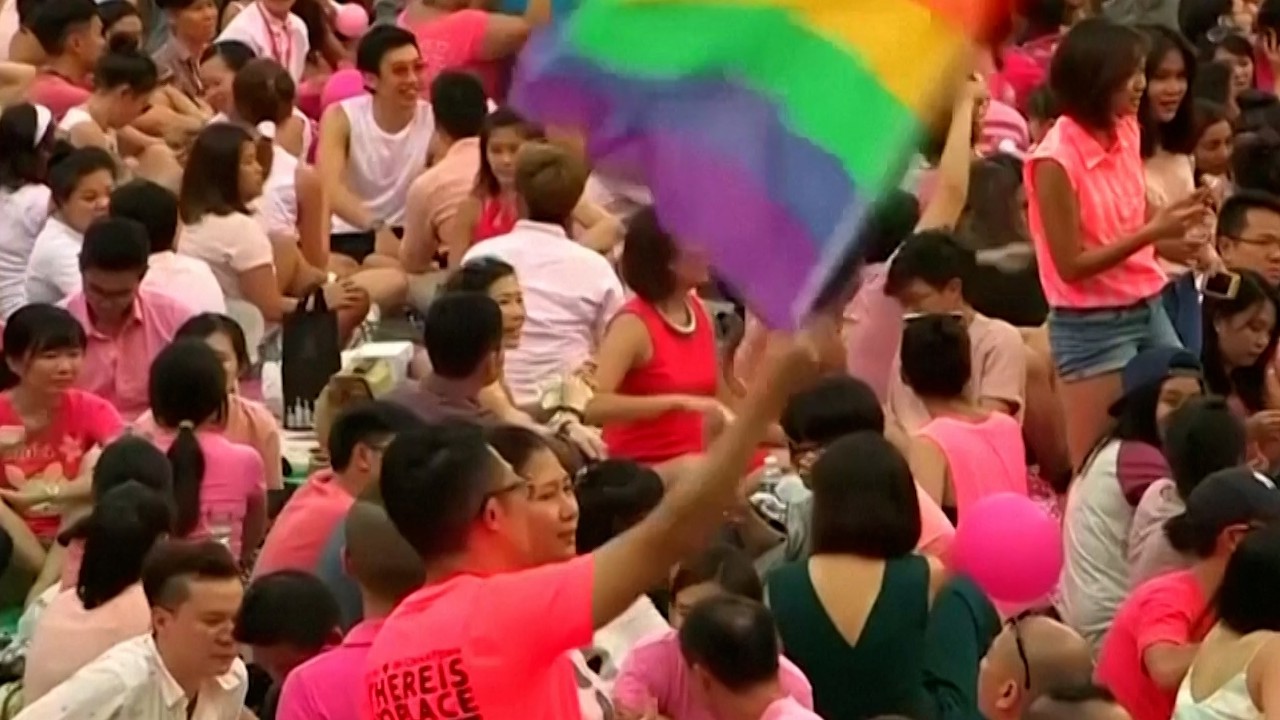
Section 377A: repeal of Singapore’s gay sex law no guarantee of LGBTQ rights progress
- While the decision is something to celebrate, there are questions on whether it could inspire greater resistance to marriage equality
Lee said he hoped the repeal would “provide some relief to gay Singaporeans”, and it is a huge step forward to many in Singapore. The decision is of landmark significance as, according to lawyer and activist Remy Choo, “With the repeal of S377A, LGBTQ Singaporeans will no longer be considered criminals in the eyes of the law. This law has caused untold harm to a significant section of our population.”
Lee said the constitution would be amended to “protect the definition of marriage from being challenged constitutionally in the courts”, limiting the definition of marriage in Singapore to only between a man and a woman.
Enshrining the traditional definition of marriage could bring about more far-reaching legal consequences. Many of Singapore’s laws and policies are based on the existing definition of marriage, including public housing, education and media policies. Without changing the constitution to affirm the definition of marriage as that between a man and a woman, these can be challenged under Article 12 of the constitution, which states that all people are equal before the law.
The attitude of the Singapore government on this issue is also worth noting. Law and Home Affairs Minister K. Shanmugam went into further detail on Monday, saying that the government was doing nothing more than maintaining the stability of the legal system by enforcing a traditional definition of marriage and that it was the job of Parliament, not the judiciary, to decide on political issues such as the definition of marriage.
Singapore has freedom of faith, and the number of people who self-identify as being non-religious is on the rise. Surveys show, however, that social attitudes remain somewhat conservative. The tendency towards conservative cultural beliefs in Asian communities helps keep the acceptance of sexual minorities at a relatively low level in society.
Why Southeast Asia’s LGBT community is finally coming out
This repeal might turn into a spark to do more in Singapore, but it is still far from enough. There is still a long way to go in the fight for equal rights for sexual minorities in Asia.
Eunice Yang is a summer intern at the Post. Lunar is a Post initiative that highlights key issues related to women and gender equality in Asia


